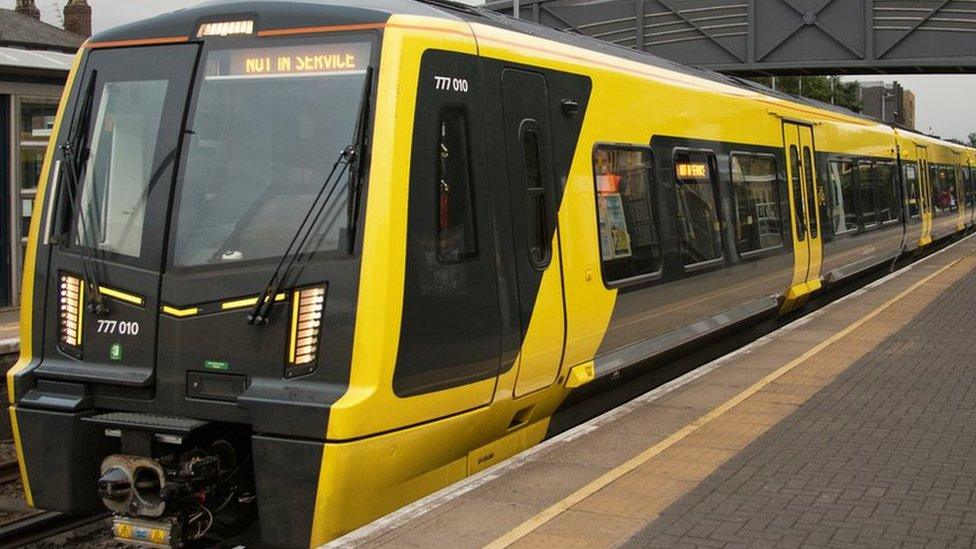Battery-powered train disruption refunds cost revealed
- Published
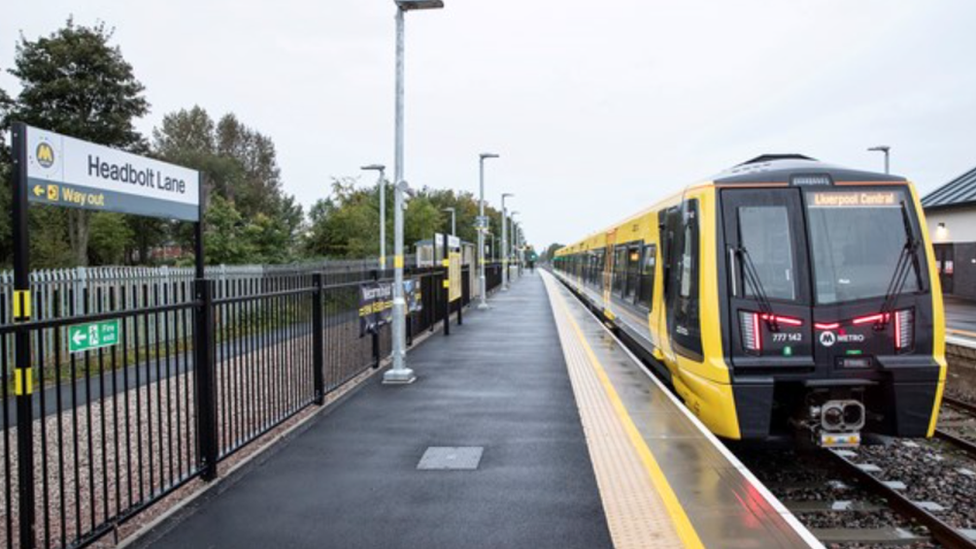
The battery-powered fleet removes the need for an electrified third rail
The cost of refunding rail passengers who suffered delays on the UK's first battery-powered fleet of trains has been revealed as more than £280,000.
The money has been set aside to refund people impacted by "teething problems" on Merseyrail's Kirkby line.
The first of the new £500m trains came on track last year, but the service has been plagued by delays.
Liverpool City Region Mayor Steve Rotheram said the refunds recognised passengers' "patience".
In October, the new £80m Headbolt Lane station was opened to serve the battery-powered trains with passengers on the Kirkby line becoming the first to commute on the new publicly-owned trains.
However during the initial roll-out services were reduced from four an hour, to one every half an hour with a large number of cancellations affecting journeys.
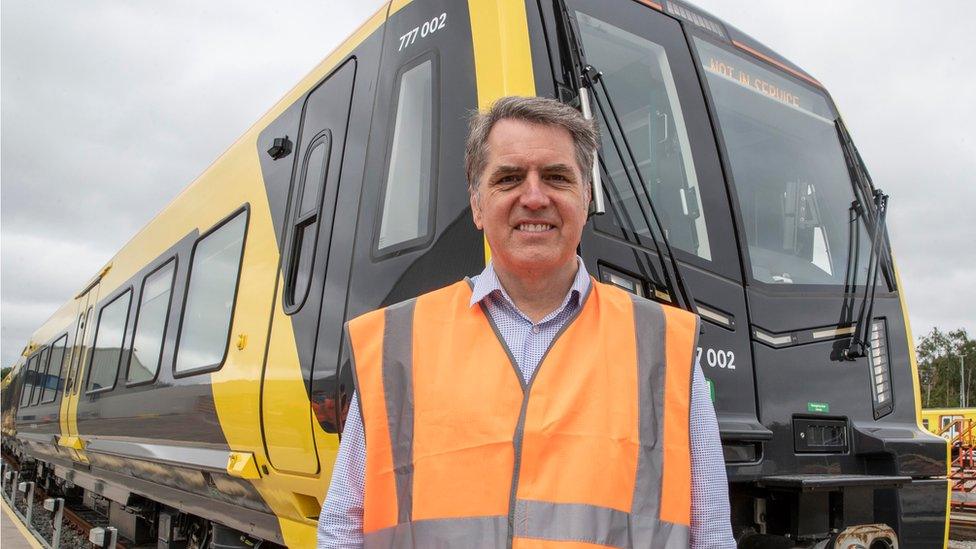
Metro Mayor Steve Rotheram said Merseyrail needs to win back passenger trust
Last month Liverpool City Region Mayor, Mr Rotheram, announced that the train operator would offer a full refund to eligible commuters who bought tickets at Fazakerley, Kirkby or Headbolt Lane stations.
Mr Rotheram admitted Merseyrail needed to win back passenger trust and said the offer of a refund was a "gesture of goodwill", recognising passengers' "patience and understanding" over the "teething issues".
Freedom of Information data revealed £282,831 is being set aside to finance the potential 1,235 claims for eligible passengers, the Local Democracy Reporting Service said.
As of 1 February, more than 700 passengers had been repaid and £226,762 had been given out.
Speaking last month at the Liverpool City Region Transport Committee, Merseyrail Managing Director Neil Grabham, said it had been a "challenging year" for the operator and "a time of huge transformation in rail across the city, probably the largest for a generation".
"As with any period of significant change, we do expect some challenges, especially embedding new technology and adopting new processes," he said.
He admitted Merseyrail had not expected all of the challenges it faced but teams had worked "tirelessly" with Merseytravel and Stadler to "address them as quickly as possible".

Why not follow BBC North West on Facebook, external, X, external and Instagram, external? You can also send story ideas to northwest.newsonline@bbc.co.uk
Related topics
- Published8 January 2024
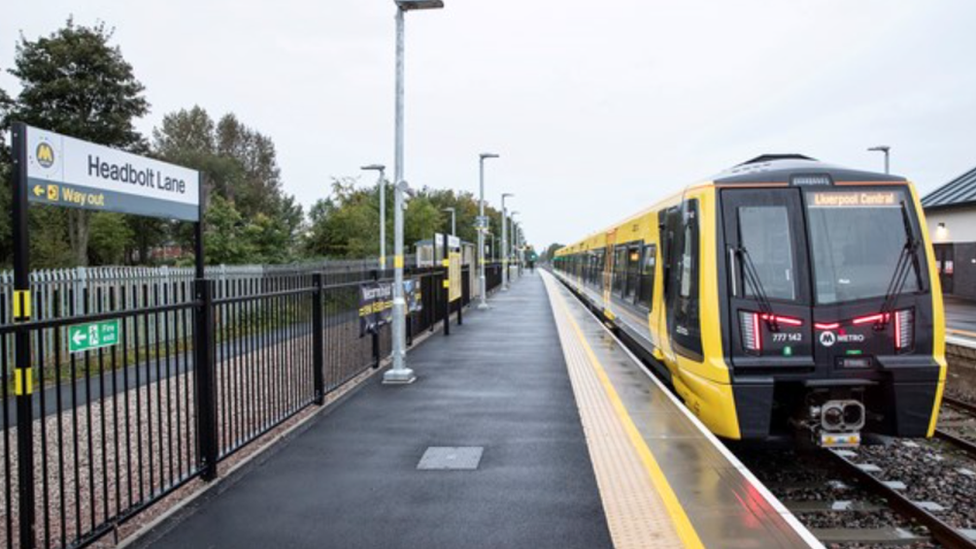
- Published16 December 2022
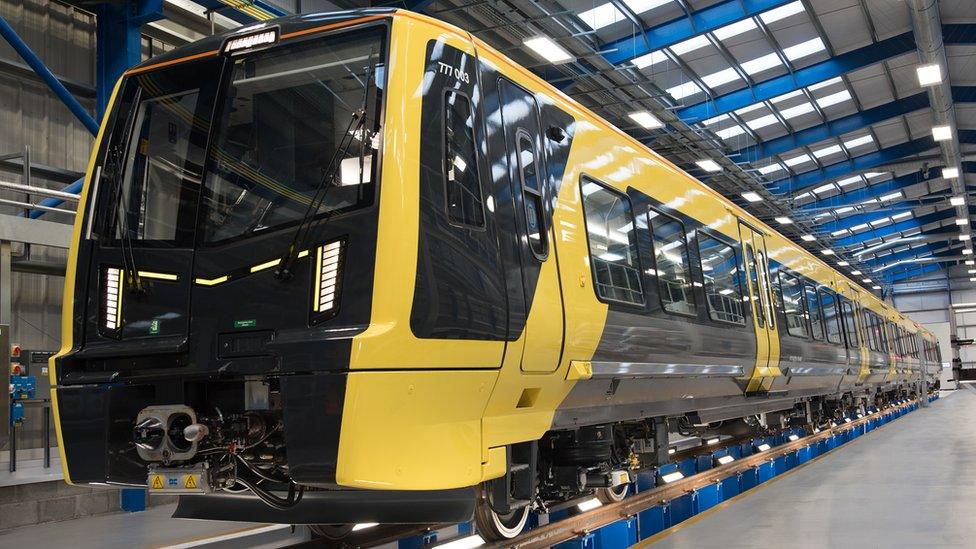
- Published15 July 2021
